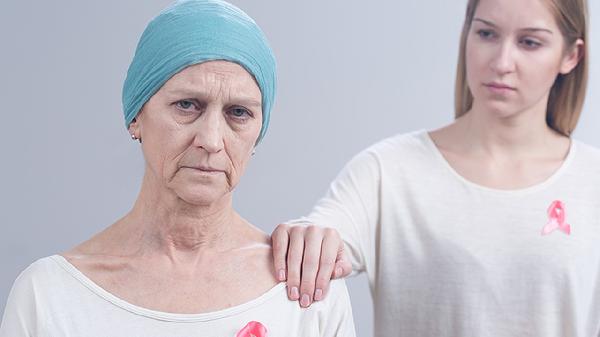Jealousy isn't just some petty emotion reserved for scorned lovers or insecure frenemies—it's a complex, messy part of being human that even Madonna couldn't simplify into a children's book lesson. That "Big Green Monster" she wrote about? It's not just lurking in middle-school cliques; it shows up in grown-up friendships, romantic relationships, and even our parasocial obsessions with influencers who seem to have it all. But here's the kicker: therapists don't actually think jealousy is inherently evil. In fact, when harnessed right, it can be a GPS for our unmet needs and a catalyst for self-improvement. So before you shame yourself for side-eyeing your bestie's promotion or your coworker's perfect relationship, let's unpack why jealousy isn't the villain we've made it out to be—and how to stop it from poisoning your connections.
The Jealousy Spectrum: From Envy to Resentment
Think of jealousy like a chameleon—it changes colors depending on the situation. Dr. Kayla Knopp breaks it down: envy is the pang you feel when your friend buys a house while you're stuck renting ("I want that too"), while resentment is the bitter aftertaste of "why do they get it and I don't?" The difference matters because envy can motivate you to hustle for that down payment, but resentment? That's the stuff of passive-aggressive group chats and friendship breakups. The tipping point often comes down to a "scarcity mindset," that toxic belief that someone else's win automatically means your loss. (Spoiler: life isn't a zero-sum game, no matter what hustle culture tries to sell you.) Women especially absorb this nonsense early, fed narratives that there's only "one seat at the table" or that we're all competing for the same partners, promotions, and praise. But here's the truth bomb: your friend's glow-up doesn't dim yours. If anything, being around people who inspire you raises your own standards—more on that later.
When Jealousy Goes Rogue: Spotting Toxic Patterns
we're embarrassed to admit we're struggling while they're thriving. But here's the irony: suppressing jealousy gives it more power. Dr. Knopp notes that acknowledging the emotion ("I'm jealous AF right now") is the first step to disarming it. Instead of spiraling into self-loathing or gossip, ask: What does this jealousy reveal about what I truly want? Maybe it's not your friend's relationship you covet, but your own lack of intimacy. Maybe their job highlights your career dissatisfaction. Jealousy isn't the problem—it's the messenger.
Shine Theory: Why Befriending Your "Rivals" Works
Ann Friedman's "Shine Theory" is the ultimate hack for transforming jealousy into fuel. The premise? Instead of resenting that colleague who nails every presentation or the friend whose Instagram looks like a Vogue spread, get close to them. Their brilliance doesn't overshadow yours—it reflects onto you. Think of it like sunlight: standing next to someone glowing doesn't put you in shadow; it illuminates you too. This isn't just feel-good fluff; it's neuroscience. Research shows emotions are contagious—surrounding yourself with motivated, confident people literally rewires your brain to adopt those traits. So next time you feel that green-eyed twinge, try a mental reframe: Their success is proof that what I want is possible. Channel that energy into asking for their advice, collaborating, or simply observing their habits. Proximity to excellence breeds growth, not lack.
The Art of the Jealousy Confession (Without Torching the Friendship)
Admitting you're jealous to the person who inspired it feels like walking into a conversation with a lit match. But done right, it can deepen trust. Dr. Knopp suggests a three-part script: 1) Own the feeling ("I felt jealous when you got the lead role—I’ve wanted that for years"), 2) Contextualize it ("It’s not about you; it’s my own stuff about feeling stagnant"), and 3) Reaffirm the relationship ("I’m genuinely happy for you, and I’m working on my own goals"). The key? Avoid backhanded compliments ("You’re so lucky they picked someone with your… unique look"). If verbalizing feels too raw, write it down first or talk to a therapist. And if the jealousy is mutual? That’s fertile ground for accountability partnerships—train for that 5K together, swap resume tips, or turn envy into collective action. Just remember: vulnerability without self-awareness is just emotional dumping.
Jealousy Detox: Practices to Keep the Green-Eyed Monster in Check
When jealousy feels overwhelming, try these therapist-approved resets: Jealousy isn’t a character flaw—it’s data. The goal isn’t to eradicate it, but to let it guide you toward your unmet needs without burning bridges. Because at the end of the day, the healthiest friendships aren’t devoid of envy; they’re resilient enough to withstand it.
Madonna might’ve painted jealousy as a cartoonish villain, but real life is more nuanced. That green-eyed monster? It’s not here to ruin your relationships—it’s here to show you where you’re hungry for more. So next time it growls, don’t shame it into silence. Feed it with action, curiosity, and maybe a little Shine Theory magic. After all, even Oprah had to start somewhere.























